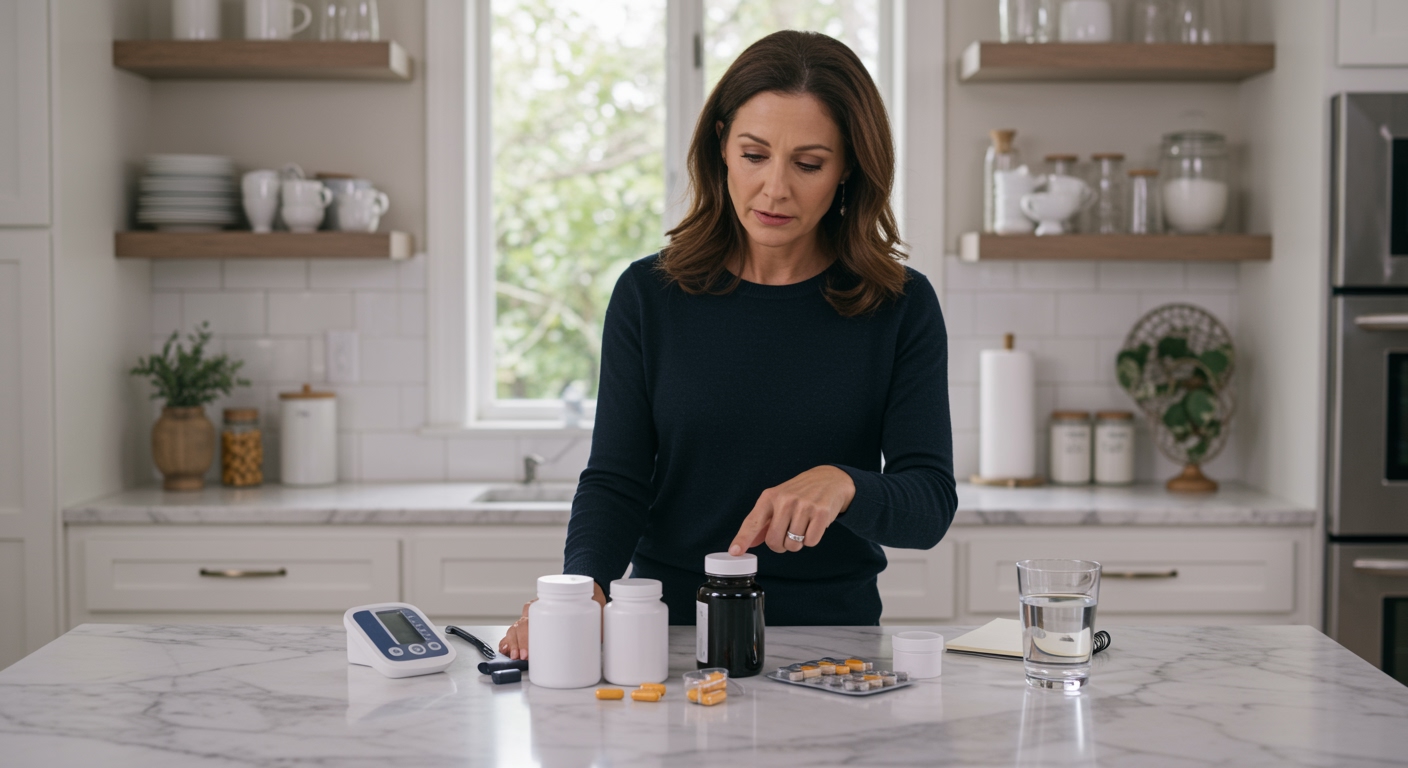✪ Key Takeaway: Germanium supplements are not recommended for hypotension patients due to lack of evidence and potential kidney toxicity risks.
Introduction
Your blood pressure readings consistently show numbers below 90/60 mmHg, and someone just told you about germanium supplements that supposedly work miracles for circulation.
You might be wondering if these trendy supplements could finally give you the energy boost and blood pressure support you desperately need.
Hi, I’m Abdur, your nutrition coach, and today I’m going to explain why germanium supplements are not the answer for hypotension patients and what you should know before considering them.
What Exactly Is Germanium And Why Do People Take It?
Germanium is a metalloid element found naturally in coal, certain plants, and soil.
Supplement companies market two main forms: inorganic germanium dioxide and organic germanium compounds like bis-carboxyethyl germanium sesquioxide.
Proponents claim germanium enhances oxygen delivery to tissues, boosts immune function, and improves circulation throughout your body.
These marketing claims sound appealing to hypotension patients who often experience fatigue, dizziness, and poor circulation due to their low blood pressure.
However, the supplement industry bases these claims on limited animal studies and anecdotal reports rather than solid human clinical trials.
The proposed mechanism involves germanium supposedly acting as an oxygen carrier in your bloodstream, similar to how hemoglobin transports oxygen in red blood cells.
This theoretical oxygen-enhancing effect attracts people with circulation problems, including those with hypotension who struggle with adequate tissue perfusion.
✪ Fact: The FDA has never approved germanium supplements for treating any medical condition, including low blood pressure.
Does Scientific Evidence Support Germanium For Blood Pressure?
The scientific evidence for germanium supplements improving blood pressure or circulation is virtually nonexistent in human studies.
Most research on germanium compounds focuses on their potential anti-cancer properties or immune system effects, not cardiovascular benefits.
A few small animal studies suggested that certain organic germanium compounds might have antioxidant effects, but these results do not translate directly to humans.
The proposed oxygen-carrying mechanism lacks peer-reviewed validation in reputable medical journals.
Your cardiovascular system already has highly efficient mechanisms for oxygen transport through hemoglobin and plasma, making additional germanium supplementation theoretically unnecessary.
Hypotension typically results from factors like dehydration, medication side effects, heart conditions, or endocrine disorders rather than oxygen transport deficiencies.
Therefore, addressing the root cause of your low blood pressure through proper medical evaluation and treatment makes more sense than relying on unproven supplements.
✪ Note: No major medical organization recommends germanium supplements for treating hypotension or any cardiovascular condition.
What Are The Serious Safety Concerns With Germanium?
Germanium supplements pose significant kidney toxicity risks that hypotension patients cannot afford to ignore.
Multiple case reports document severe kidney damage, including acute renal failure, in people taking germanium supplements for extended periods.
The inorganic form, germanium dioxide, accumulates in your kidneys and can cause irreversible damage to these vital organs.
Even organic germanium compounds, marketed as safer alternatives, have been associated with kidney problems in some users.
Hypotension patients often have underlying health conditions or take medications that already stress their kidneys, making additional germanium exposure particularly risky.
Symptoms of germanium toxicity include fatigue, muscle weakness, loss of appetite, and changes in urination patterns – signs that overlap with hypotension symptoms.
This overlap makes it difficult to recognize germanium poisoning early, potentially allowing kidney damage to progress before you seek medical attention.
✪ Pro Tip: Always inform your doctor about any supplements you take, as they can interact with blood pressure medications.
What Should Hypotension Patients Do Instead?
Focus on evidence-based approaches that actually help manage hypotension safely and effectively.
Increase your fluid intake gradually throughout the day, aiming for at least 8-10 glasses of water to help maintain adequate blood volume.
Add a pinch of high-quality sea salt to your meals, as sodium helps your body retain fluids and can gently raise blood pressure.
Wear compression stockings during the day to improve blood return from your legs to your heart, reducing symptoms like dizziness and fatigue.
Stand up slowly from sitting or lying positions to give your cardiovascular system time to adjust and prevent sudden drops in blood pressure.
Consider working with a healthcare provider to evaluate potential underlying causes like thyroid disorders, adrenal insufficiency, or medication side effects.
Some people benefit from small, frequent meals rather than large ones, as digestion can temporarily lower blood pressure in susceptible individuals.
✪ Fact: Simple lifestyle modifications often provide better results for hypotension than expensive, unproven supplements.
The Bottom Line
Germanium supplements offer no proven benefits for hypotension patients while carrying serious risks of kidney damage that could worsen your overall health.
Your health deserves better than expensive gambles with unproven supplements when safe, effective solutions already exist.
Share your thoughts or questions about managing hypotension in the comments below – I read every single one and often discover new topics to explore together.
References
At NutritionCrown, we use quality and credible sources to ensure our content is accurate and trustworthy. Below are the sources referenced in creating this article:





